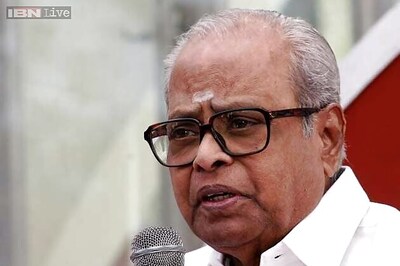
views
New Delhi: The National Commission for Women (NCW) has condemned the “light” punishment given to a former senior police officer for molesting a teenaged tennis player and has urged a fresh look at how the case was investigated.
S P S Rathore, a former director general of police in Haryana, was on Monday given six months imprisonment by a special Central Bureau of Investigation (CBI) court in Chandigarh in the August 1990 Ruchika Girhotra molestation case. He got bail the same day and didn’t have to go to prison.
Ruchika, a 14-year-old budding tennis player, committed suicide in December 1993, following her and her family's continuous harassment allegedly at the behest of Rathore.
The NCW has set up a five-member committee of jurists to examine the case files to see if investigation in the case was influenced. The commission has written a letter to the Haryana Chief Minister, requesting him to explore the possibility of appealing against the judgment.
Rathore has refused to comment on the allegations against him. "Personally, I do not have any grudge against the media and I respect its freedom. I would approach them only when the right time comes," he told IANS on Wednesday.
"I am not like other people, who are giving interviews on television or to the print media and to speak illogical things that come to mind," Rathore said.
Anand and Madhu Prakash, whose daughter Aradhana was the prime witness to the molestation, and their lawyer say the punishment given to Rathore is too little.
CPI-M MP Brinda Karat, while speaking in the Rajya Sabha, called the punishment in case shameful and urged for tougher laws in sexual harassment cases.
"A criminal who committed that crime in police uniform and escape justice for 19 years was rewarded with promotion after promotion. And, 19 years later this criminal has finally been found guilty. What is the punishment - just six months."
"And the day he was convicted, he was out on bail within 10 minutes. Isn't it a shame for all of us... how long can we tolerate this kind of action. It reveals deep infirmities in our system of delivery of justice," she said.
(With inputs from IANS)




















Comments
0 comment